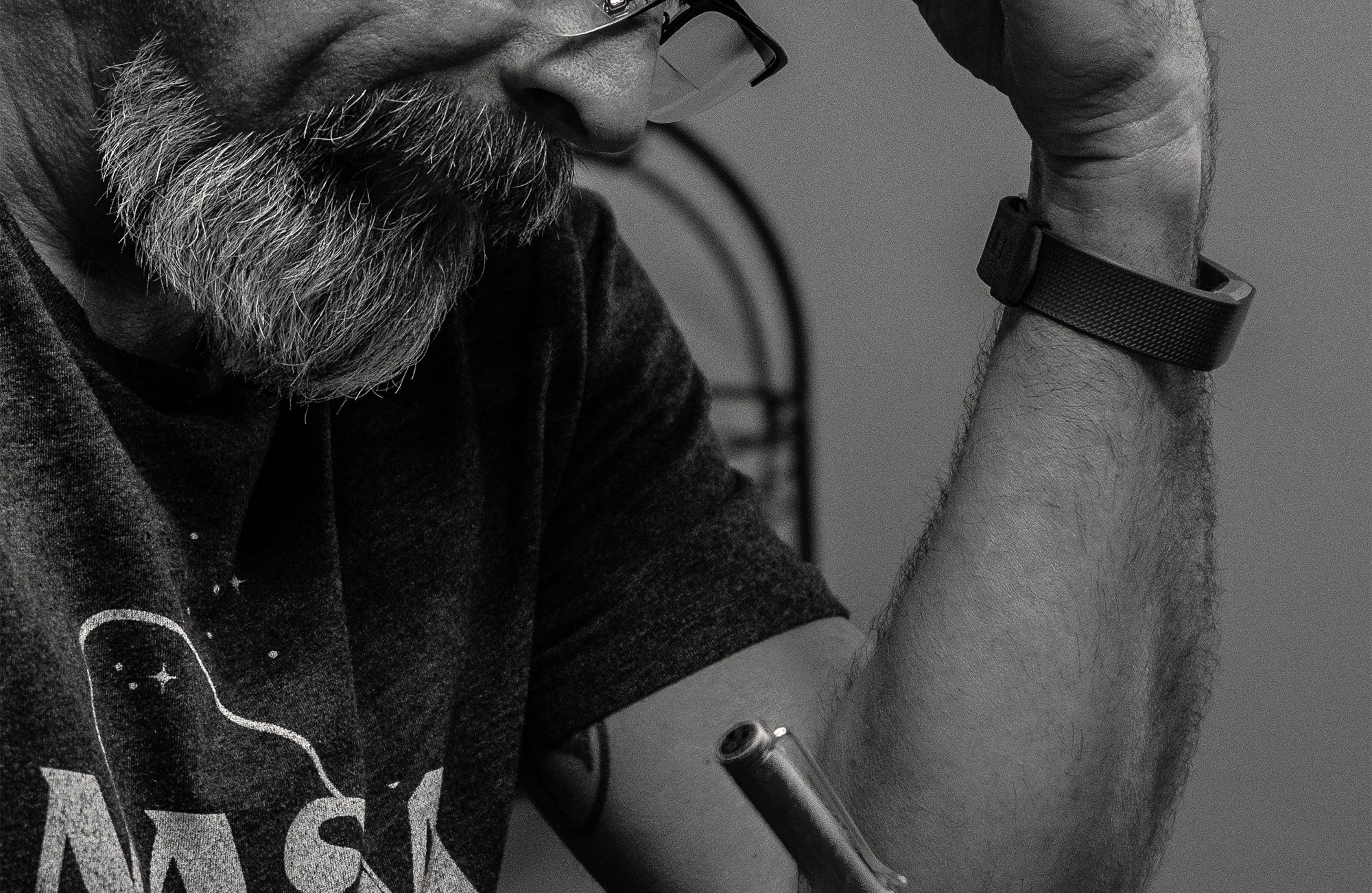
How to Write Better Lyrics: 13 Tips to Improve Your Songs
When it comes to writing hip-hop music, good instrumentals can take you a long way, but a song is nothing without strong lyrics to support it. Especially in a genre like rap, which has such a rich lyrical tradition, it’s not possible to rely just on beats. Your instrumentals should provide the background for the message you want to get across through your lyrics.
Easier said than done, though. Writing good lyrics can be a real challenge, even for the pros. A well-composed rap is truly a feat of artistic genius, and the words are the most important part. With the task being as difficult as it is, it’s no wonder why so many aspiring rap and hip-hop artists need a little guidance and inspiration to write a great track.
To help give you a push in the right direction, we’ve compiled a bunch of useful information that you can use to improve your music-writing skills. Read on below for 13 tips to write better rap lyrics.
1. Take Advantage of a Rhyme Dictionary
One of the most important parts of writing song lyrics, especially for a rap song, is that words in strategic places rhyme. Often the better a rhyme is in a rap song, the more impressive the lyricism is considered to be by listeners. A song that doesn’t rhyme is a much harder sell and isn’t likely to be very successful.
However, rhyming is sometimes difficult to do. It’s not always easy to think of the appropriate words to use when you’ve written yourself into a corner.
Luckily, you can always use a rhyming dictionary to help you out of a tough spot. With this tool, you can simply look up a word you’d like to use and find a whole bunch of other words that rhyme with it. Many songwriters rely on tools like this to help them produce the best lyrics they possibly can.
2. Never Forget an Idea with a Lyrics Journal
If your typical approach to writing a song involves sitting down at a particular moment and trying to crank all the lyrics out at once, and you’re having trouble making this strategy work, you might need to get out of this mindset entirely. Rather than forcing creative genius to strike at the moment you decide, accept the fact that inspiration can come to you at any moment, and it’s your job to seize it when it appears.
It can be helpful to keep a lyrics journal on you at all times when inspiration strikes suddenly. This can be a pocket-sized physical book or just the notes application on your smartphone. But the most important thing is that you have some way to document all the ideas that you have for lyrics as soon as they strike you, no matter where you are.
Once you get into this habit, you’ll never find yourself sitting at your desk and staring at a blank page again. You’ll always have a catalog of previously unused ideas to fall back on.
3. Don’t Stress – Let the Lyrics Write Themselves
It’s often much easier to write creatively when you’re not stressed about creating a perfect work of art every time. Sometimes by just letting loose and not worrying about what happens, you can end up with some of your best work.
If you’re experiencing writer’s block, try freewriting for a bit. This is an exercise many writers do where they just write down anything that pops into their head for a period of time. You won’t end up with a fully polished song, but when you’re done you can highlight and extract anything particularly notable that came out of the exercise and use it in an in-progress work.
4. Focus on a Central Theme
For many songwriters, the message behind the lyrics is far more important than the words themselves. This is especially true in the rap genre, which has been used for decades as a vehicle for dispersing powerful ideas and creating meaningful change through art.
When you find yourself struggling to put words on the page, try to take a step back and remember the big picture. Focus on the central theme you want to express to your listeners, and the right words will come to you.
5. Be Mindful of Your Syllable Count
Another critical aspect that songwriters have to pay attention to when coming up with lyrics is syllabification. For the words you write to fit well over the beats in your songs, you need to make sure each line has the appropriate number of syllables. If this is done poorly, it can really throw off the whole rhythm of the song and make it difficult to listen to.
Making sure to use a deliberate and systematic approach to determining how many syllables belong in each line will go a long way towards improving the quality of your lyrics. Remember that the goal isn’t to give each line the same number of syllables, but rather to make sure that the number of syllables in each line allows the lyrics to fit well with the beat.
6. Write Down Whatever You Think of – Even if it’s Imperfect
It’s important that you don’t feel insecure about your ideas in their raw forms. When a thought comes into your head, it will most likely require some polishing before it’s ready to be displayed to an audience. However, if you don’t seize on the moment and write it down just because it isn’t perfect yet, it’s easy to forget these seeds of creative ideas and squander their potential.
With this in mind, you should always make a note of any ideas that come to you for your songs. Remember that you can always sift through your hasty notes later and improve upon your initial thoughts to make a polished and cohesive set of lyrics.
7. Create an Outline of the Song’s Structure
Creating a map of the structure of your song can be a big help when it comes to filling it out entirely with lyrics. Many writers find that dividing their projects into smaller sections makes them more manageable and easier to process conceptually. Plus, it allows you to write your song out of order, which is incredibly helpful, especially if you only have ideas for a chorus or one particular verse.
8. Start with a Strong Chorus, and the Rest Will Follow
Writing enough lyrics to fill out a three to five-minute song sounds like a lot of work. But there are some built-in conveniences that make the songwriting process go a lot smoother.
Besides the fact that a certain amount of your song’s runtime will be occupied by instrumentals, remember that lyrics tend to include sections that repeat. That’s why it’s so important to put work into your chorus, refrain, or any frequently repeated part of your song.
If the chorus is solid, then most of your work is already done, and you’ll be surprised how easy it is to fill in the verses later.
9. Personalization is Key
It’s important to keep in mind that the songs you write should be a reflection of you. You can draw so much inspiration from your own life story and who you are as a person, and the unique qualities you bring to your lyrics will make your songs better. If you just remember to focus on adding that personal touch, it will really make your music stand out and do a lot for your career.
10. Don’t Get Stuck in a Rut
If you’ve gotten bogged down by rehashing the same old routine every time you try to write a song, don’t be afraid to break the mold a bit and try a new approach. It will never hurt you to shake up your method and broaden your perspective a little bit.
11. Try to Use Vibrant Imagery
Your listeners want to have a moving sensory experience when they listen to your music. You can use your words to make them see and feel whatever you want, as long as you know what you’re doing.
Make an effort to use literary devices like metaphor and imagery in your lyrics, as it can really improve the quality of your writing.
12. Tap into a Personal Struggle
If you feel strongly about a certain topic, writing powerful words about it should come somewhat naturally. Don’t be afraid to bring your history and your background into your artwork, as listeners often find themes of personal struggles and overcoming hardship to be quite moving.
13. Let the Music Be Your Guide
At the end of the day, the most vital aspect of a hit track is that the lyrics fit well with the music. When in doubt, really tap into the beat and the instrumentals and let the words flow naturally to fill in the empty space.
Conclusion
Now that you’ve read our 13 tips for writing better rap lyrics, you’re ready to get started on your next big hit. Whether you choose the handful of strategies that appeal to you most or incorporate all thirteen into your creative method, you’re more likely to come up with the perfect words to put over your instrumentals.
Browse Beats & Instrumentals
Listen to our extensive and exclusive catalog of over 400 custom-made beats and instrumentals, available for free download or purchase.


No Comments